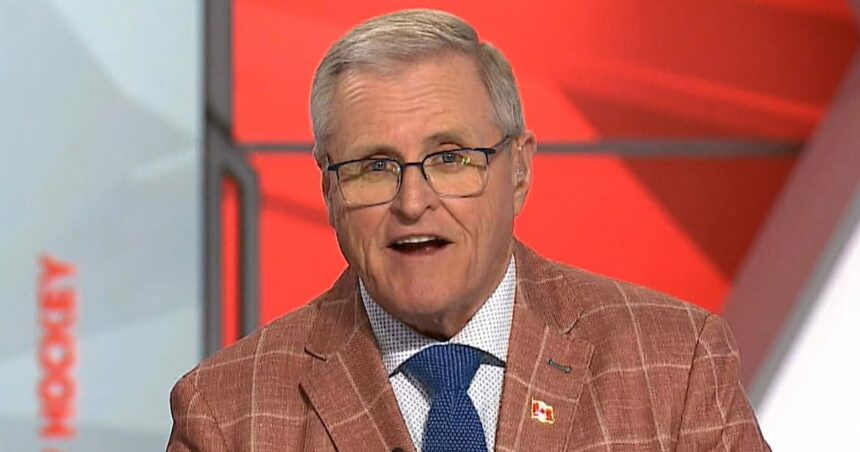The voice that has guided Canadian hockey fans through trades, drafts, and breaking news for nearly four decades is preparing to hang up his microphone. Bob McKenzie, the quintessential hockey insider whose analysis has become as much a part of the sport as the ice itself, announced today that he will retire from TSN in 2025 after an extraordinary 38-year career.
Few figures in sports journalism have achieved McKenzie’s level of trust and credibility. When “Bobby Mac” speaks, the hockey world listens—not just fans, but players, coaches, and executives alike. His retirement marks the end of an era that saw sports journalism transform from print newspapers to the 24/7 digital news cycle we know today.
“I’ve been blessed to have a front-row seat to the evolution of the game,” McKenzie said in his announcement. “From the Gretzky era through to today’s speed and skill revolution, it’s been the privilege of a lifetime to share these stories with Canadian hockey fans.”
What separates McKenzie from the crowded field of sports commentators has always been his unparalleled network of sources and his commitment to accuracy over sensationalism. In an age where being first often trumps being right, McKenzie built his reputation on verification and context. His draft rankings became required reading for fans and scouts alike, while his deadline day coverage turned routine NHL transactions into must-see television.
The timing of McKenzie’s announcement allows for a proper farewell tour through the 2024-25 NHL season. It also gives TSN time to consider how to fill the considerable void his departure will create. As one network executive put it, “You don’t replace Bob McKenzie—you simply acknowledge there was hockey coverage before him, with him, and there will be a different landscape after him.”
McKenzie’s influence extends beyond his reporting. He helped mentor a generation of hockey journalists who now populate networks and publications across North America. His willingness to embrace social media early—amassing over 1.8 million Twitter followers—showed veteran journalists how to adapt to changing media consumption habits without sacrificing journalistic principles.
The significance of McKenzie’s career can’t be overstated in Canadian cultural terms. Hockey information is cultural currency in Canada, and McKenzie has been the central bank for decades. His analysis has shaped how fans understand player development, contract negotiations, and the intricate dance of team building. On CO24 Culture, we’ve often discussed how certain figures transcend their professional roles to become cultural touchstones—McKenzie epitomizes this phenomenon within Canadian sports.
What remains unclear is whether McKenzie will maintain any role in hockey media after his formal retirement. Many veteran journalists have pivoted to podcasts or subscription newsletters where they can work on their own schedule while maintaining their connection to the sport. Given the emerging trends in sports media consumption, McKenzie would likely find a substantial audience willing to follow him to new platforms.
The announcement has triggered an outpouring of appreciation from colleagues, players, and executives. Wayne Gretzky called McKenzie “as important to hockey’s growth as any player,” while NHL Commissioner Gary Bettman acknowledged him as “the gold standard of hockey journalism.”
For Canadian fans of a certain age, McKenzie’s retirement forces a confrontation with the passage of time. His steady presence through Olympics, World Juniors, Stanley Cup playoffs, and countless trade deadlines has been a constant in a changing sports landscape. His retirement will leave many viewers contemplating not just who will break the next big trade, but how a voice so intertwined with their hockey experience can ever be replaced.
As we examine the broader implications for sports journalism on CO24 Opinions, McKenzie’s career offers valuable lessons about credibility in an era of diminishing trust in media. He demonstrated that expertise, relationships, and integrity remain powerful currencies even as technology transforms how we consume information.
When McKenzie signs off for the final time in 2025, he’ll leave behind more than just a remarkable career—he’ll leave a template for how sports journalism can maintain its relevance and authority even as the media landscape continues its relentless evolution. The question that remains is not just who will replace Bob McKenzie, but whether anyone can.






















